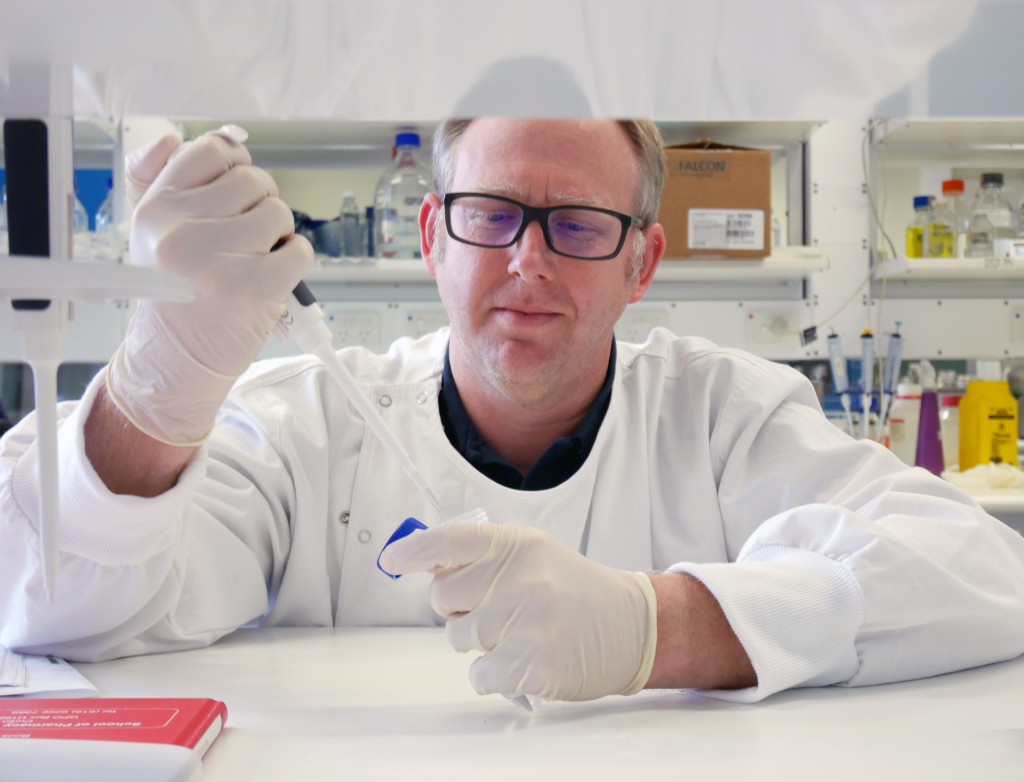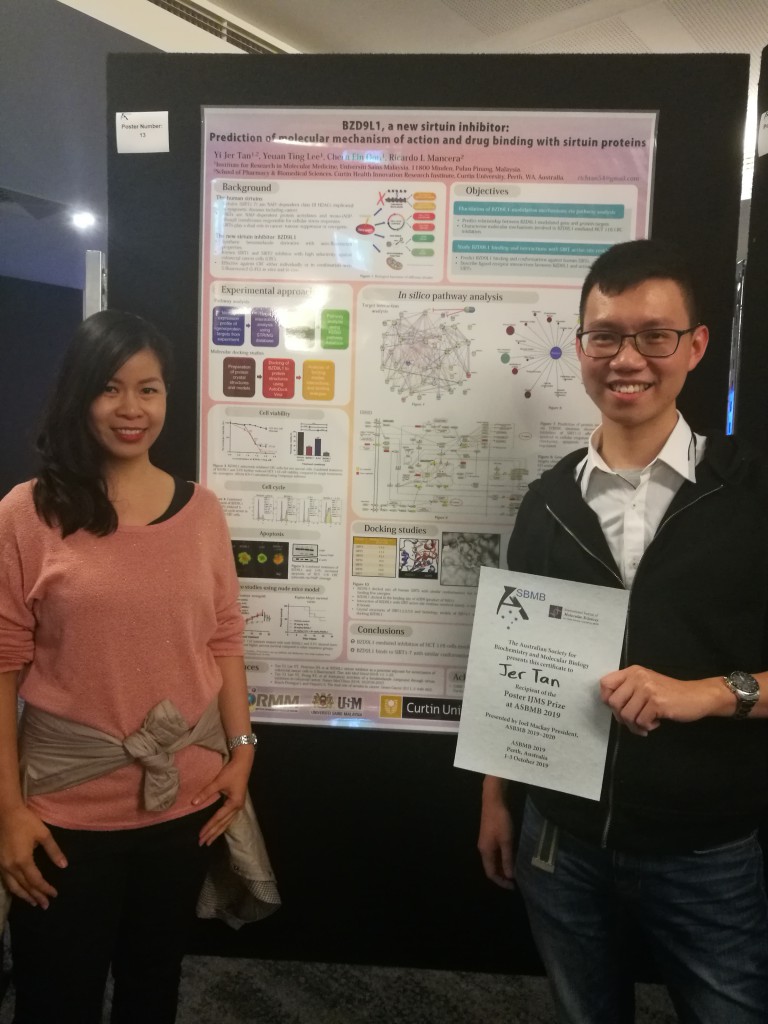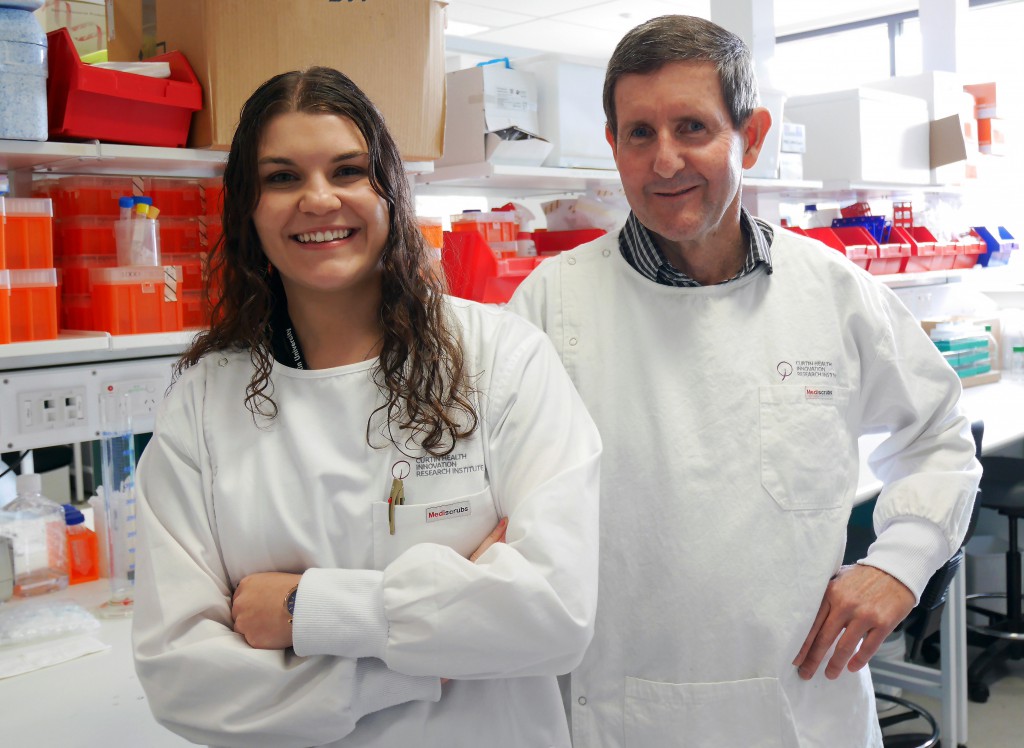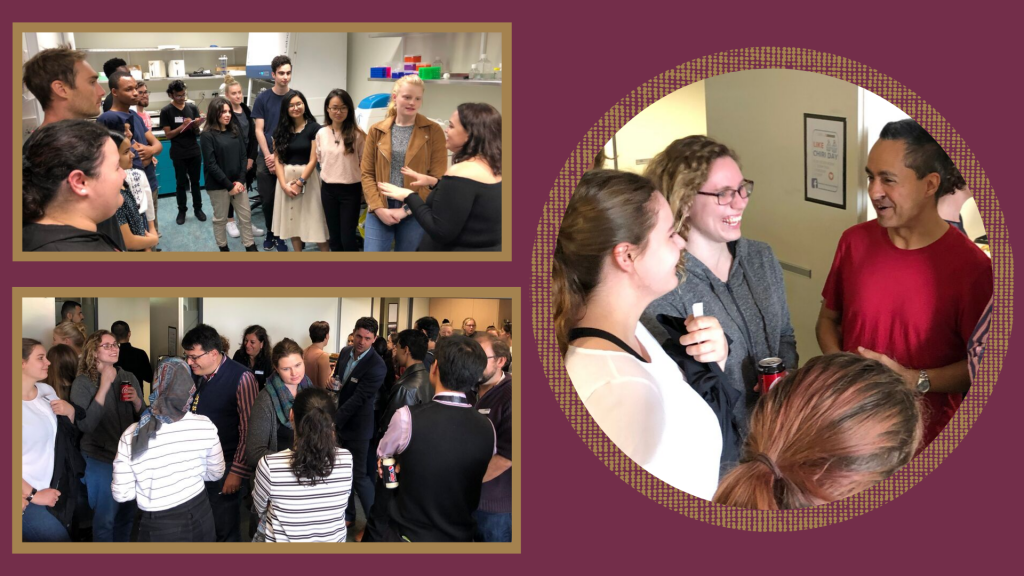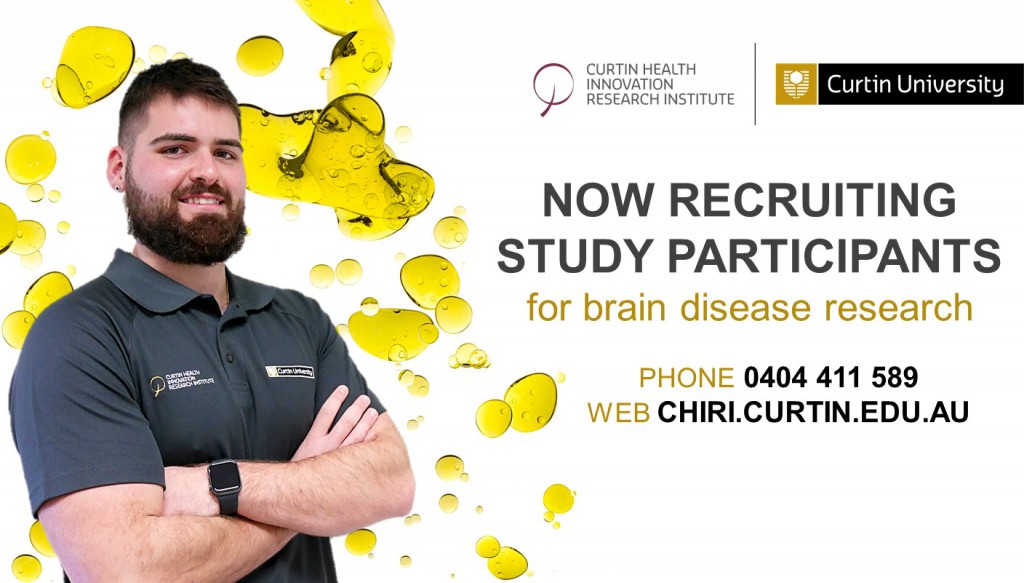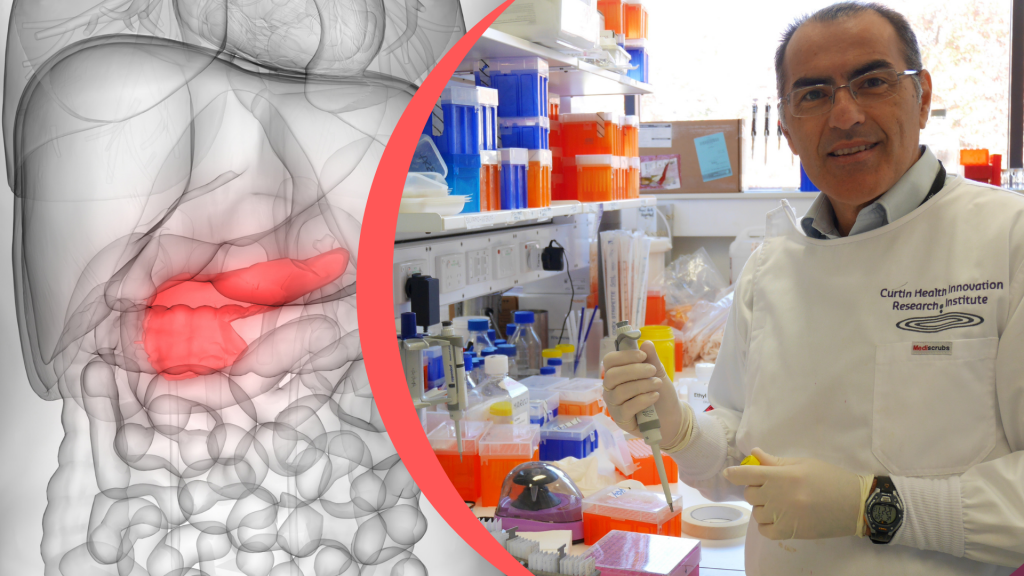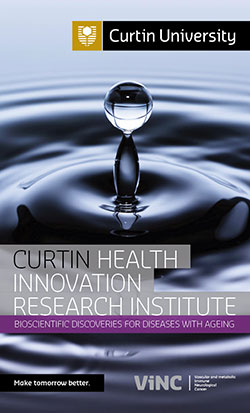An international collaborative study, of which Curtin Health Innovation Research Institute researcher Associate Professor Pieter Eichhorn is one of the lead authors, has discovered that using drugs to target a pathway in the body that causes cancerous cells to spread aggressively may help to reduce the severity of bladder cancer. The research is published in the prestigious journal Nature Communications. Congratulations to Pieter and the research team! Read the media statement, which includes a link to the full paper, here: https://buff.ly/33MHuk0
Promising PhD research a prize winner
The inaugural biennial meeting of the Australian Society for Biochemistry and Molecular Biology was particularly rewarding for PhD student Yi Jer (Richard) Tan, whose research poster won him the International Journal of Molecular Sciences prize.
Richard, who is undertaking his studies at the Institute for Research in Molecular Medicine (INFORMM) at Universiti Sains Malaysia in Penang, where he is supervised by Associate Professor Chern Ein Oon, has been spending most of this year at the Curtin Health Innovation Research Institute (CHIRI) conducting research under the co-supervision of our researcher Professor Ricardo Mancera. Read more…
Hands up for a funding boost
Two Curtin Health Innovation Research Institute (CHIRI) PhD students have put their heads together and their hands up to secure a welcome funding boost for their research as part of an awards scheme offered by the institute. Shelley Waters and Michael Wildie are the latest recipients of funding under the CHIRI-Hands-Up Support Scheme, receiving a small grant for their research into human cytomegalovirus (CMV).
They will use the funding to find out more about why people respond differently to the virus, zeroing in on the role of a particular enzyme in the body inactivated by CMV and thought to be critical to immune response against it.
Most people are infected with CMV as children and many carry the virus all their lives, which presents a problem if our immune system is suppressed or becomes less active with ageing. When apparent, symptoms of the virus may include fever, sore throat, swollen glands, abdominal pain and jaundice, and in some cases severe disease.
Shelley said while CMV has several ways of evading the immune system, the difference in the immune response between individuals is poorly understood. Read more…
Researchers and students talk Honours opportunities
Curtin University researchers and final and second year students recently came together to talk 2020 Honours projects and summer scholarships at a meet and greet session hosted by the Curtin Health Innovation Research Institute (CHIRI).
Organised by Curtin’s Biomedical Sciences Club and the School of Pharmacy and Biomedical Sciences in partnership with CHIRI, the event provided an opportunity for about 75 students to get some valuable one-on-one time with the researchers who could potentially supervise their further studies in 2020.
Some students were treated to a tour of CHIRI’s state-of-the-art research facilities by someone who knows all about life as a postgrad – CHIRI PhD student Nikita Walz.
CHIRI researcher and Curtin Bachelor of Science (Biomedical Science) Honours (BH-BIOMED) Coordinator Dr Carl Mousley said events like the meet and greet are important for students and researchers alike.
“These events ensure students are aware of the research opportunities available to them and help researchers attract the best students for their projects,” he said. “It was great to see so much energy and enthusiasm in the room, it was an important and worthwhile event.”
CREST concussion study now recruiting!
 The Neurotrauma research team at Curtin University and the Perron Institute, led by CHIRI Deputy Director Professor Lindy Fitzgerald, are currently recruiting participants for an exciting new study on concussion – the CREST Concussion REcovery STudy.
The Neurotrauma research team at Curtin University and the Perron Institute, led by CHIRI Deputy Director Professor Lindy Fitzgerald, are currently recruiting participants for an exciting new study on concussion – the CREST Concussion REcovery STudy.
The study is the largest of its kind in Western Australia and involves a range of techniques that are at the forefront of concussion research.
Most people recover from concussion injuries within a few weeks, however approximately 10-20 per cent of people experience delayed recovery of months, or even years. There is currently no way of knowing which individuals will go on to develop these persistent post-concussion symptoms. The aim of this study is to identify factors which may predict individuals at increased risk of delayed recovery following concussion to better manage treatment and improve recovery. Read more…
Research Training Program PhD Scholarships open – prestigious Strategic Projects offered with CHIRI!
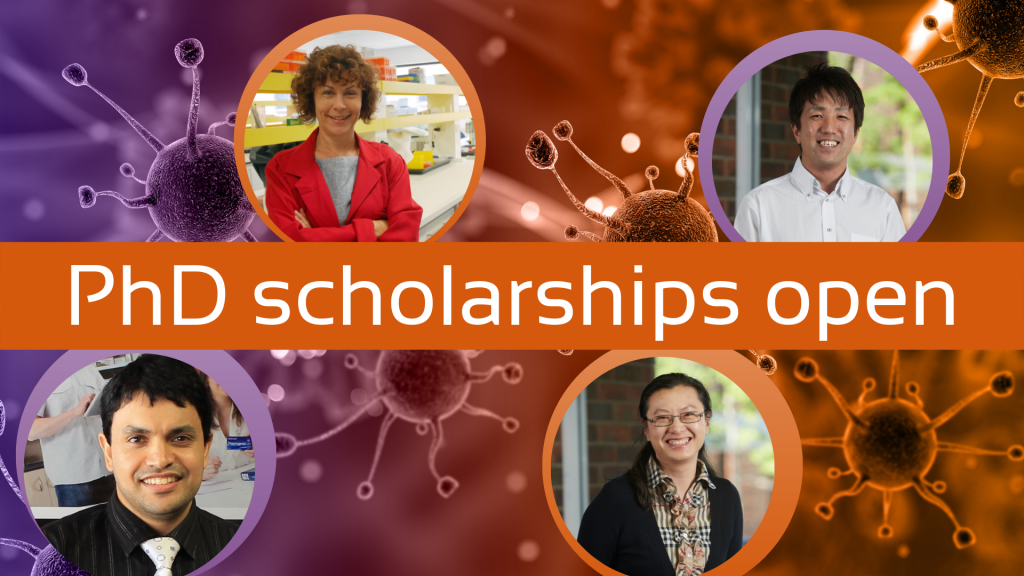
CHIRI’s Dr Hani Al-Salami, Professor Melinda Fitzgerald, Dr Yan Chen and Associate Professor Ryu Takechi.
Three strategic projects supervised by Curtin Health Innovation Research Institute researchers are up for grabs as part of the 2020 Australian Government Research Training Program (RTP) Scholarships Competitive Round. The prestigious scholarships will receive additional complementary funding to current RTP standard scholarships.
The RTP is an Australian Government funded scholarship scheme that provides funding support for both domestic and international students undertaking higher degrees by research (HDR).
To be eligible to be nominated for a strategic project you must:
- be a new student who is not currently undertaking a Higher Degree by Research Course (Master or PhD) at Curtin;
- be a Domestic Student; and
- meet the RTP 2020 Scholarship application criteria.
Details of RTP strategic projects offered by Curtin are available on its website. You’ll find more information on the three CHIRI-related projects under the ‘Health Sciences’ tab, or read more below.
Hurry, applications close 5pm WST Sunday 1 September 2019. Read more…
Double funding win for CHIRI’s immunology researchers
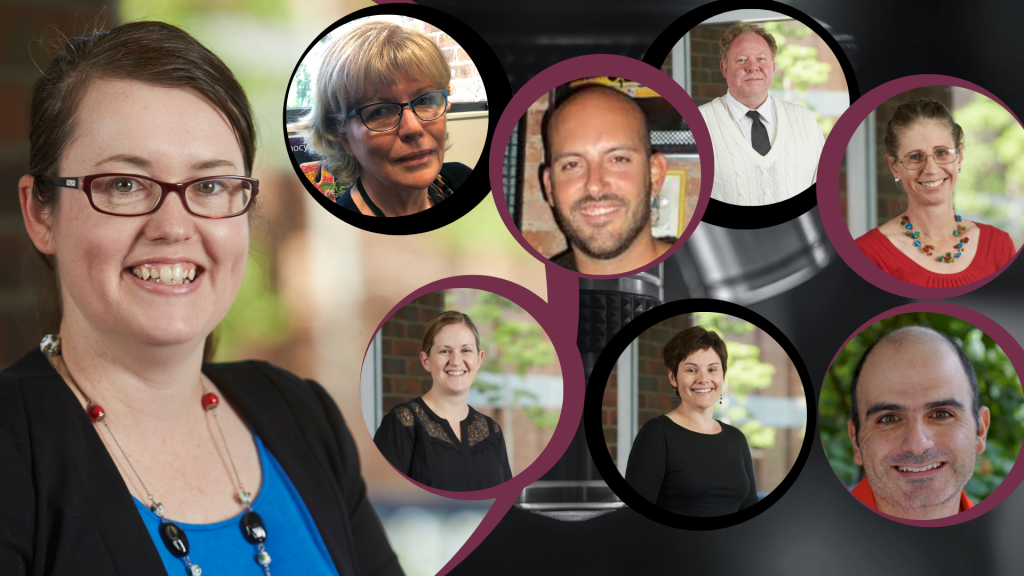
Dr Connie Jackaman, Associate Professor Delia Nelson, Dr Rodrigo Carlessi, Professor Philip Newsholme and Dr Kylie Munyard (top row), Dr Hannah Crabb, Dr Danielle Dye and Associate Professor Giuseppe Verdile (bottom row).
Making diseases of ageing old news is Curtin Health Innovation Research Institute (CHIRI) immunologist Dr Connie Jackaman’s aim and she now has two new funding grants totalling $175,000 to help her do it.
The Cancer Council WA awarded $100,000 to a research team Connie’s leading to investigate immune dysregulation during ageing and the impact on cancer immunotherapy. Contributing to the team are CHIRI researchers Associate Professor Delia Nelson, Dr Rodrigo Carlessi, Professor Philip Newsholme and Dr Kylie Munyard.
A second research project led by Connie, to investigate the impact of acute muscle injury-induced inflammation on the brain in the elderly, received Dementia Australia Research Foundation (DARF) funding of $75,000. Expertise on this team includes CHIRI researchers Dr Hannah Crabb, Dr Danielle Dye and Associate Professor Giuseppe Verdile.
CHIRI Director John Mamo congratulated Connie and her research teams on their success and thanked the two funders.
“We are so grateful to the Cancer Council WA and Dementia Australia Research Foundation for their support,” he said. Read more…
How you and some dietary oils may help progress brain disease research
Imagine if the key to improving outcomes for patients with degenerative brain diseases such as multiple sclerosis, Parkinson’s disease or Alzheimer’s disease was sitting right there in our kitchens and in the meals we eat.
Our research at the Curtin Health Innovation Research Institute is telling us this is a possibility and our PhD student Zac D’Alonzo is recruiting participants for a study to further investigate this line of research inquiry.
The study is examining how people respond to meals containing commonly consumed dietary oils. In particular, it is looking at the effectiveness of these oils to influence blood metabolites that positively regulate capillary vessel function. Read more…
CHIRI leads discovery of potential new pancreatic cancer treatment
Research led by Curtin Health Innovation Research Institute (CHIRI) researcher Professor Marco Falasca has discovered a potential new treatment for an aggressive form of pancreatic cancer which the team hopes may increase the survival of patients resistant to currently available chemotherapeutic drugs.
Published in the Journal of Experimental and Clinical Cancer Research, the research found a specialised protein in human pancreatic ductal adenocarcinoma (PDAC) cancer cells that is critical for tumour progression. The researchers discovered that treatment with a modified version of an anti-inflammatory drug, called sulindac, could block cancer progression in preclinical models with PDAC.
Marco, who is the lead author, said the protein studied in this research is also known to cause resistance to currently available cancer chemotherapeutic drugs.
“Overexpression of tumour promoting proteins found in cancers like PDAC is one of the main reasons why chemotherapeutic drugs are ineffective for the treatment of pancreatic cancer. Targeting this protein could be particularly beneficial in treating patients who have failed standard chemotherapy for PDAC,” he said.
“Further research is needed to determine whether a possible drug combination, which includes the modified version of sulindac, may also provide promising results in human clinical trials. If successful, then this new treatment has the potential to increase survival for patients with pancreatic cancer.” Read more…
New scholarship to build on CHIRI’s student talent in liver cancer research
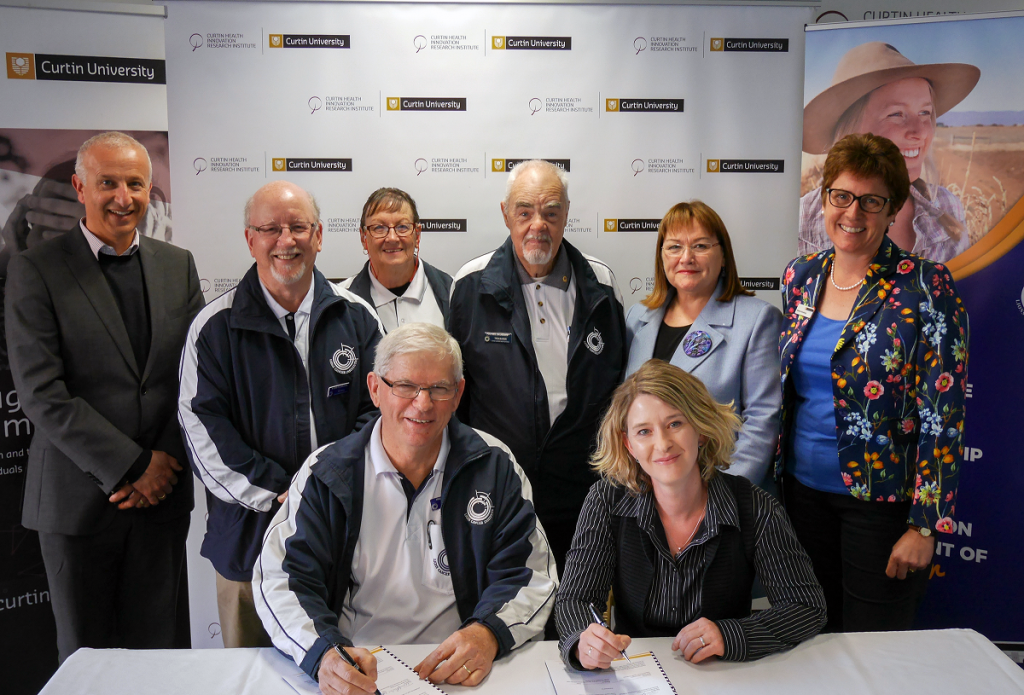
Back row: John Mamo (CHIRI Director) and Lions Cancer Institute’s Bill Crosthwaite (Secretary), Dot Saunders, Neil Saunders (Treasurer), with Helen McCutcheon (Curtin Deputy Pro Vice Chancellor Health Sciences) and Fabienne Vonarburg (Curtin Senior Development Manager). Front row: Lions Cancer Institute’s Philip Chinnery (Chairman) and Nina Tirnitz-Parker (CHIRI).
The Curtin Health Innovation Research Institute (CHIRI) is looking to welcoming the first recipient of a newly launched PhD scholarship thanks to support from the Lions Cancer Institute.
Announced this week and fully funded by the Lions Cancer Institute, the Lions-Lotus PhD Scholarship will attract high-quality PhD students to Curtin University to conduct cutting-edge research for the prevention and treatment of liver cancer at CHIRI.
The scholarship recipient will be supervised by Associate Professor Nina Tirnitz-Parker from CHIRI and Curtin’s School of Pharmacy and Biomedical Sciences, an internationally recognised expert in chronic liver disease and cancer.
CHIRI Director Professor John Mamo said he was grateful to the Lions Cancer Institute for its support of the scholarship, which would focus on addressing important research questions about this global disease that affects thousands of Australians every day. Read more…
